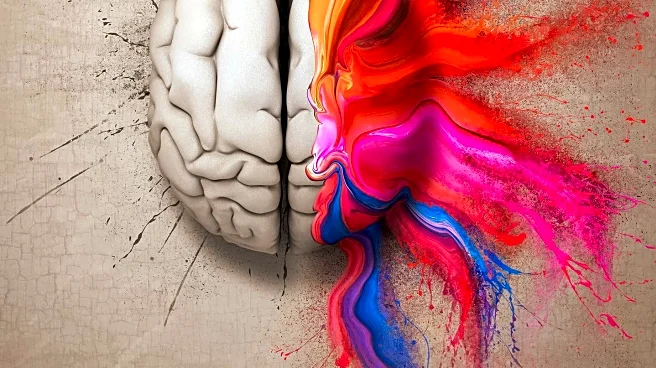What's Happening?
Recent research is shedding light on the role of chaos in the brain's extraordinary functions, suggesting that the human mind operates near a critical point between order and disorder. This concept, known as the critical brain hypothesis, posits that the brain's electrical activity follows patterns similar to natural phenomena like avalanches and forest fires. Researchers believe that this state of 'criticality' allows for optimal information processing, adaptability, and creativity. The hypothesis is gaining traction among neuroscientists, who see potential applications in understanding intelligence, consciousness, and mental health disorders.
Why It's Important?
The critical brain hypothesis offers a new framework for understanding complex brain functions and could revolutionize approaches to mental health treatment. By identifying how the brain maintains its critical state, scientists may develop interventions to enhance cognitive abilities or address dysfunctions associated with disorders like Alzheimer's disease. The hypothesis also provides insights into the nature of consciousness and creativity, potentially leading to new methods for fostering innovation and problem-solving skills. As research progresses, this understanding could influence educational practices and therapeutic strategies.
Beyond the Headlines
The implications of the critical brain hypothesis extend beyond neuroscience, touching on philosophical questions about the nature of consciousness and free will. The idea that the brain operates at the edge of chaos challenges traditional views of the mind as a purely deterministic system. This perspective may influence debates on artificial intelligence and the development of machines capable of human-like thought processes. Additionally, the hypothesis could inspire new approaches to meditation and mindfulness practices, as individuals seek to harness the brain's critical state for personal growth and well-being.










